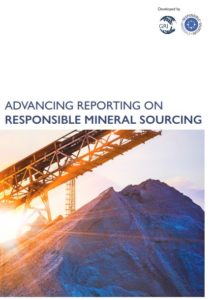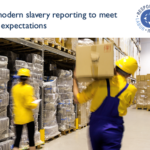
The Responsible Minerals Initiative (RMI), an Initiative of the Responsible Business Alliance, and the Global Reporting Initiative (GRI), have launched a toolkit to advance reporting on sourcing minerals from conflict-affected and high-risk areas.
The resource helps companies report on their commitments, due diligence processes and actions related to social impacts in the supply chain. It highlights the benefits of disclosure and identifies challenges and opportunities. The toolkit also encourages increased and improved reporting, referencing regulatory and stakeholder expectations, with examples of reporting practices and relevant tools.
Companies face growing expectations to demonstrate how they are respecting human rights, the environment, labor rights and business ethics in their operations. This includes within mineral value chains; in particular the adverse impacts from sourcing ‘conflict minerals’ (tin, tantalum, tungsten and gold) as well as cobalt and other minerals.
Governments, international organizations, investors, customers and industry stakeholders expect the private sector to drive responsible behavior and reach upstream actors like smelters, refiners and mine operators. Companies, meanwhile, are expected to identify, assess, cease, prevent and mitigate risks and disclose their actions and outcomes in accordance with globally recognized frameworks.
“The RMI and GRI share a strong commitment to supporting the responsible sourcing of minerals,” said Leah Butler, Vice President at the Responsible Business Alliance. “This toolkit is the result of close collaboration between our organizations, members and stakeholders, and we hope companies will use it to improve the quality of their due diligence and impact reporting.”
Tim Mohin, Chief Executive of GRI, added: “Leading companies are doing their part to end the conflict and human rights abuses associated with their minerals supply chains. This toolkit provides practical guidance to help companies working on these issues to disclose meaningful and comparable data. By improving transparency, our aim is to increase accountability to help combat these serious issues.”
The toolkit developed by GRI and the RMI presents the results of the Corporate Leadership Group, which represented 11 organizations from a range of industries. It includes information from international frameworks, such as the OECD Due Diligence Guidance, and regulatory requirements. There has been input from many stakeholders, including upstream suppliers, smelters and refiners, civil society organizations, and socially responsible investors.
The RMI is one of the most widely used resources for companies from multiple industries to address minerals due diligence challenges in their supply chains, while GRI’s sustainability reporting standards, developed through robust stakeholder consultative processes, are the most widely used by companies and governments worldwide.
View the Responsible Mineral Sourcing Reporting Toolkit. For additional information about the RMI-GRI project, download this overview.



